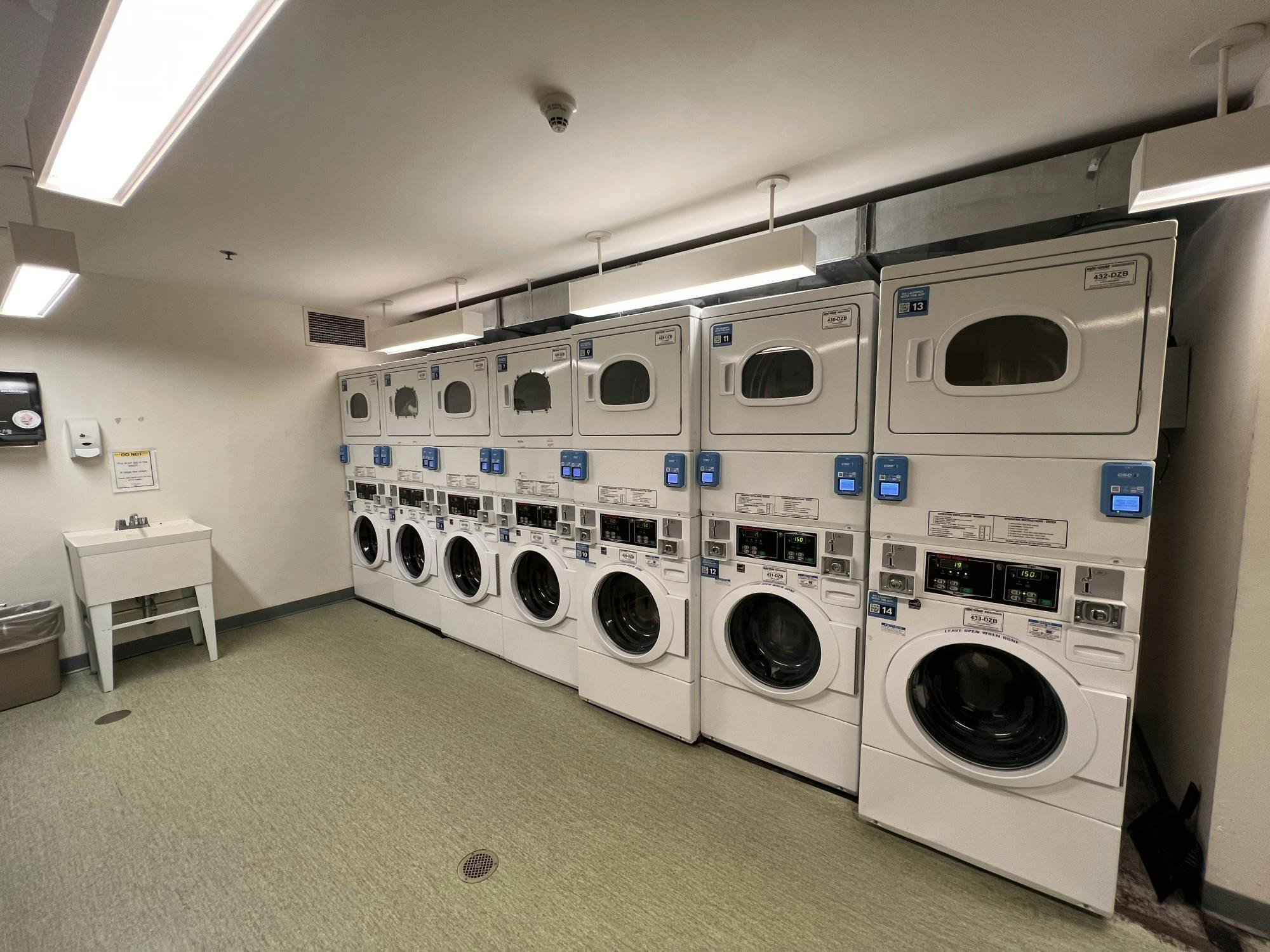When laundry is done properly, clothes and linens come out clean. But that is not always the case at Dartmouth, with students reporting issues ranging from damp clothing to moldy washers in College dormitories.
Aside from some washing machines leaking, failing to start or harboring mold, even “seemingly functional” washers and dryers are simply not doing the job, according to Ranvir Deshmukh ’26.
“Everyone complains about the laundry,” Deshmukh said. “The machines are broken — this machine is not working, that machine is not working.”
According to director of residential operations Cathy Henault, the washers and dryers are not operated by the College.
“The washers and dryers are owned and managed by CSC ServiceWorks, an outside vendor,” she wrote. “Dartmouth is in the eighth year of a 10-year contract.”
And, eight years into the contract, Henault wrote in an email to The Dartmouth that she is familiar with the problems the machines commonly face. She ascribed many issues to “overloading” of the machines.
“This creates problems with washers being able to wring out properly, resulting in overly wet clothes going into dryers,” Henault wrote. “This causes the dryers to take longer to dry or not dry all the way.”
As the machines enter their waning days, they have begun to show structural problems, too, according to Henault.
“Parts in general are failing on machines due to the age of the machines,” Henault wrote.
Adelina Smith ’23 said that the weak spin cycle on many of the washing machines fails to remove enough moisture from the clothing, putting extra stress on the dryers and requiring multiple cycles to fully dry clothing.
For Emma Symon ’26, doing the laundry often leads to “overflowing,” sudsy machines.
To that end, Henault said that students should avoid using too much detergent, as “too many suds will shut a machine down.” According to recent reporting in the New York Times, most loads of laundry require only one or two tablespoons of liquid detergent.
For Deshmukh, who is a South House senator, the faulty washers and dryers pose issues to his senatorial duties in addition to his own clothes, he said.
“Everyone comes and tells me the same thing every day,” Deshmukh said. He said one resident of Middle Fayerweather Hall called him to complain about spending $20 on laundry, after a dryer failed to dry her clothing after four cycles.
Evan Lai ’26 also said that the dryers cannot dry clothes efficiently.
“Especially with the dryers, they don’t dry properly,” Lai said. “So, I’ll pay my money to dry my clothes and they’ll come out damp, and I have to put it in for another cycle. Now, what I’m doing is I’m loading half capacity and then running two machines, which is obviously more expensive.”
Adelina Smith ’23 said that when she lived in residence halls before moving off-campus, she spent about $15 a week on laundry, and had to run the dryer multiple times to dry her clothing.
“Obviously it’s hard to make college-proof washing machines, sometimes people have user error,” Smith said. “But there is a lot of room for improvement and a lot of room for a price change.
Lai and Smith’s comments touch on an additional complaint among students. Although many peer institutions — including Ivy League colleges like Columbia University, Princeton University and the University of Pennsylvania — do not charge for laundry, Dartmouth does, requiring $1.50 for each use of the washer and another $1.50 per use of the dryer for standard settings.
“I think paying for laundry should be included in your dormitory fees,” Lai said, adding that students already “pay enough” to be here. The current cost of residence in the dormitories is $3,627 per term, according to the Office of Residential Life website.
But price negotiations cannot be discussed until the 10-year contract with CSC ServiceWorks expires, Henault wrote.
“Back in 2014, the contract was set up with paid laundry,” Henault wrote. “I expect a discussion to happen regarding free laundry when this contract is complete.”
For now, Henault wrote, the dollars students pay for laundry are used to maintain the machines.
“The revenue from the washer-dryer commission goes toward the expense of running the machines — electricity, water and network upkeep in particular,” Henault wrote. “Anything above those expenses goes toward the building expense,” she wrote, before listing “taxes, insurance, [and] maintenance.”
College spokesperson Diana Lawrence wrote in an email to The Dartmouth that CSC ServiceWorks has a technician on campus every other day, if not every day.
“Unfortunately, because of the age of the machines, they do break down occasionally,” Lawrence wrote. “Some are down for extended periods of time because CSC cannot find parts. They have begun replacing machines and have replaced two to date.”
But as complaints continue to pile up, the issue has begun to take on greater significance among Student Government, according to East Wheelock senator Jack Wisdom ’26.
“A lot of members of the board of trustees have agreed that they want to try and move to something different in the future, maybe make it free,” Wisdom said.
In the meantime, Henault told students to reach out if a machine is in need of repair.
“There is a phone number on the CSC posters in laundry rooms,” Henault wrote. “I would recommend calling residential operations (646-1203) or emailing residential.operations@dartmouth.edu with work orders, though. We can make sure the order is submitted and follow up if necessary.”
Jacob Strier ’23 contributed to reporting.




